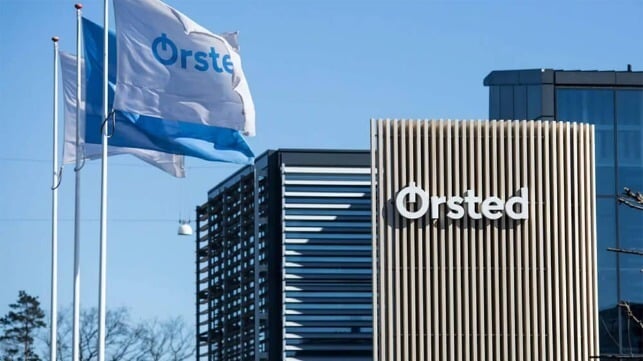Ørsted Ousts CEO as Pressure Continues in Offshore Wind Sector

Danish renewable energy giant Ørsted reported today, January 31, a change in CEOs as the company continues to struggle with pressures in the offshore wind sector. The news of the change in leadership came just days after Ørsted reported it would be taking a further $1.7 billion in impairment charges related to its U.S. offshore wind projects following a massive $5.6 billion write-down in November 2023.
The board of directors announced that the company was replacing Mads Nipper who had led the company as Group President and CEO since January 2021. They reported he is stepping down effective tomorrow, February 1, but acknowledged during his four-year tenure Ørsted’s installed renewable capacity grew from 11.3 GW to the current 18.2 GW in 2025.
“The renewable energy market has fundamentally changed since January 2021. The impacts on our business of the increasingly challenging situation in the offshore wind industry, ranging from supply chain bottlenecks, interest rate increases, to a changing regulatory landscape, mean that our focus has shifted. Therefore, the board has today agreed with Mads Nipper that it’s the right time for him to step down, and the board has appointed Rasmus Errboe to take over as CEO,” announced Lene Skole, Chair of Ørsted’s Board of Directors.
Analysts highlighted that Ørsted has lost more than 80 percent of its market value from its peak. In 2021, the stock was trading at nearly $75 a share making the company worth nearly $100 billion while today the shares closed at $12.82 giving the company a market value of just $15 billion.
Despite the significant write-down charges due to the impairment of assets, Ørsted issued preliminary 2024 results reporting an operating profit (EBITDA) for 2024 of $3.5 billion. However, it said that would be after a $1.7 billion charge due to long-dated U.S. interest rates, reduced value of its subsea leases located off the coasts of New Jersey, Maryland, and Delaware, and mounting construction costs and delays for Sunrise Wind, located in the New York Bight, which is following Revolution Wind, located off Connecticut and Rhode Island, into construction.
Nipper called the challenges “very disappointing” while saying the company remained committed to the U.S. market. The 2023 charges were due to the decision to pull out of two late-stage planned large wind farm projects off the coast of New Jersey. The 2023 charges led to the ouster of the group’s Chief Financial Officer Daniel Lerup and its Chief Operations Officer Richard Hunter.
The company has continued to realign its global portfolio but just this week announced it was proceeding with the construction of the largest wind farm in the Baltic. Other disappointments included the shelving in August 2024 of an ambitious methanol production plant which would have been a supplier to the shipping industry,
The new CEO, Rasmus Errboe, joined the company in 2012 and became Deputy CEO and Chief Commercial Officer after the reorganization in 2023.
Speaking about Errboe, board chair Skole said, “As our Deputy CEO and CCO, and former Regional Head of our European market and former CFO for the global offshore business, he has a deep understanding of our business and an extensive knowledge of the energy industry. I’m therefore convinced that Rasmus is the right person to lead the company through the challenges facing the industry and Ørsted.”
Before being appointed Deputy CEO and Chief Commercial Officer, Rasmus Errboe held the positions of Interim Group CFO, Regional Head of Europe, Regional Head of Continental Europe, CFO for the Offshore business unit globally, and Head of Ørsted’s Group M&A department, and he was overall responsible for the IPO of Ørsted in 2016 and the divestment and carve-out of Ørsted’s Oil & Gas business in 2017.
Ørsted emerged as the successor to the former Danish Oil and Natural Gas as the focus shifted from fossil fuels to renewables. The company is majority-owned by the Danish government. In late December 2024, it was announced that Equinor, the Norwegian state energy company, had increased its ownership stake to 10 percent of Ørsted.
The company is scheduled to publish its annual report for 2024 on Thursday, February 6. It will be hosting a presentation to analysts and investors.
